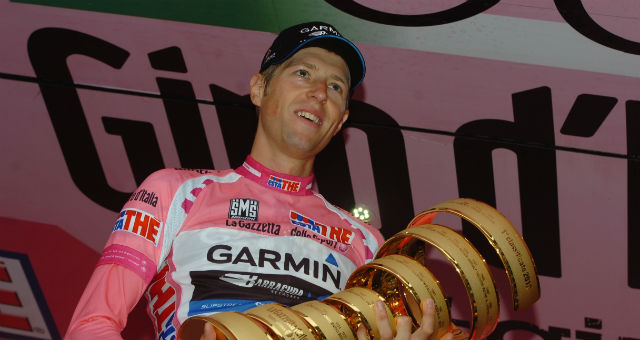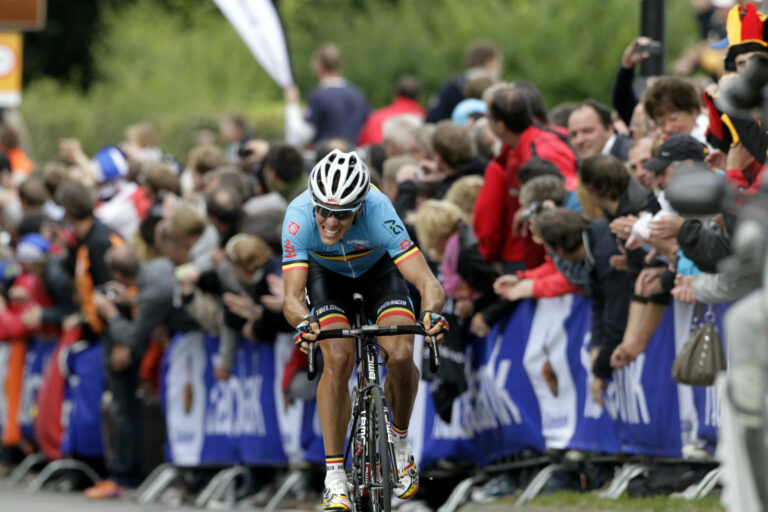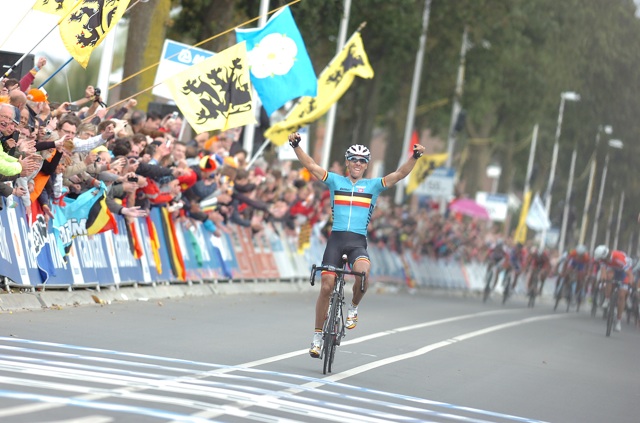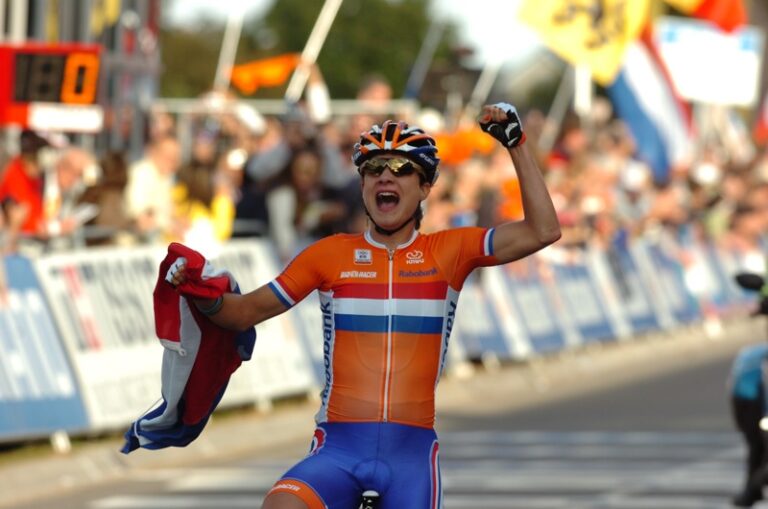Much has been written in the immediate aftermath of the Olympic Games about the refreshing change offered by Great Britain’s successful, personable and determined athletes from the greed and spite routinely displayed in the Premiership and the vacuity of celebrity culture.
No lesser authority than Sir Chris Hoy has declared ridding society of the instant celebrity of reality television the greatest legacy London 2012 could leave. The Olympic Games offered the home nation a direct comparison between those who had occupied the front pages in recent years and new heroes.
Ed Clancy typifies the case for the athletes, and, more particularly the cyclists, the most successful squad in Great Britain’s Olympic team. A double gold medalist in the team pursuit (he won his first in Beijing as part of a line-up that included Bradley Wiggins) and a bronze medalist (and former world champion) in the omnium, Clancy is proud to have represented his country, grateful for the once-in-a-lifetime opportunity of a home Games, and utterly without pretension.
He insists that medals won with a team are more rewarding than those attained by his own efforts, and admits to doubts about the legitimacy of the omnium as an Olympic event. Most emphatically, he does not consider himself a different or better person than when he had no international honours on his palmares.
“I don’t wake up in the morning and think, ‘wow, what a spectacular athlete I am,’” he says. “You don’t see yourself any differently. I don’t think, ‘wow, I’m such a great person because I’ve won a couple of gold medals.””
The manner of Great Britain’s victory over their Australian rivals in the final of the men’s team pursuit belied the closeness of the rivalry between the teams in the build up to the Olympic Games. When they had last met in the London Velodrome, victory, and the world record, had gone to Australia. Clancy and his teammates had to be content with silver.
The wait to reclaim supremacy and the world record wasn’t a long one. In April, Great Britain returned the complement of a drubbing on home soil at the UCI World Track Championships in Melbourne. Team GB were clearly the stronger, but even then, Clancy wasn’t anticipating any easy time in London.
“We were expecting a massive toe-to-toe with the Aussies again. After the worlds, we’d have cut off our arms to have a three-second margin. That was a nice surprise,” he says of the Olympic final.
Predictably, Clancy is modest about the performance that brought the team gold and another world record. He is full of praise for his teammates (Steven Burke is a “massive talent”; Peter Kennaugh a “massively underrated rider”) and reveals that he wasn’t until the pre-Games holding camp at the Newport velodrome that it dawned on him the team was performing better than it ever had.
He had, of course, tasted Olympic glory in the team pursuit before. He and Geraint Thomas were the two remaining riders from the team that won gold in Beijing in similarly emphatic fashion. They raced on that occasion with Wiggins and Paul Manning, now coach to Team GB’s equally successful women’s team pursuit squad. How do the two squads compare?
“It felt to me like we had a much more experienced team in Beijing, but it might not necessarily be the case. In Beijing, me and Geraint were like the kids of the team,” he recalls. The line up of Clancy-Manning-Thomas-Wiggins squad remained undefeated for two years in the run up to Beijing. “Every world cup we won, every world championship we won. Brad had been world champion and Paul Manning had been team pursuiting since time began.” The squad for London could not boast the same immaculate run in, leaving Clancy concerned. “We lost a few races, not because we weren’t the best riders there, but because we weren’t dialed enough, we hadn’t spent enough time together. It’s difficult to do when you have guys like Pete and like Gee who are balancing a road and track career. Geraint never lost faith and was always confident that things would turn out well and it turned out to be true.”
How true would become apparent in the London Velodrome, by common consent among the Team GB riders the venue with the greatest support of any they had experienced. Clancy describes the atmosphere at the Games and the Olympic test event as “crazy” and compares the velodrome to a nightclub: a venue to make the ears ring. “It was a great atmosphere and we’re grateful for everyone in there who gave us a cheer and a clap.”
With a gold medal in his pocket, Clancy prepared for the omnium, and won two of six events on the schedule (the flying lap and the 1km time trial). He finished third overall, adding a bronze medal to his Olympic collection, but had the commissaires been sharper in judging the elimination race, would have had silver.
Clancy is unconcerned. “I don’t hold any grudges against what happened in the elimination race at all, but I do shrug my shoulders and think, ‘That’s what’s going to happen if we have events like that in the Olympics,” he says.
The event has been good to him, he admits, but he does not believe it stands comparison with those it replaced on the Olympic roster. He offers the elimination race as an example. “Does the elimination race compare to the individual pursuit and the kilo, with the Chris Boardmans and the Chris Hoys? The whole faster, higher, stronger ethos of the Olympics? I’m not so sure,” he says.
Some of his ambivalence you suspect lies in his regard for the race as a “bonus event”, an enjoyable addition to his schedule away from the serious business of the team pursuit. He insists that his greater satisfaction from the team event does not come from the greater personal success it has brought, but rather from the team’s shared experiences: overseas training camps, rounds of the Tour Series with his Rapha Condor Sharp teammate, Andy Tennant, the team pursuit squad’s fifth man.
Clancy describes the remainder of his season as “pretty sparse”. He has only one remaining competitive engagement this season, the Newport Nocturne on September 1, for Rapha Condor Sharp, whose manager, John Herety, he praises for his understanding. “Other than that, it’s a case of shaking hands with sponsors and showing the medal.”
Sponsors will not be in short supply. Our conversation has been arranged by representatives of Nine Bar, a sports nutrition company whose products Clancy has helped to develop.
His future is open and at 27 a significant portion of his career remains ahead of him. A home Olympics, however, is unlikely to be repeated during his career, and he is grateful for the opportunity to have performed at the highest level before a home crowd. “You shouldn’t take the home Olympic thing for granted. I know it’s the Olympic Games and we’ve been there and done that before. A lot of athletes will go through their whole career and not have the opportunity to compete at that level on their home turf.”
Clancy concedes that the events of the last few weeks have yet to fully sink in, but he is unlikely to change when they do. “Ordinarily, if you’d asked me 10 or 15 years ago, how would you feel about winning two Olympic golds, you’d be like, ‘oh yeah, that would be amazing. It would be such a fantastic achievement.’
“But once you’ve been through it and done it yourself, you realise you’re just four guys dressed up in lycra, riding around a wooden track. We’re not super humans. It’s perhaps fair to say we’ve got a bit of talent and yeah, we work hard, and we’re part of a good system. Once you’ve done it yourself, you don’t think it’s anything spectacular.”
Ed Clancy was talking to RCUK as an ambassador of 9Bar, a nutrition company whose products he uses.





